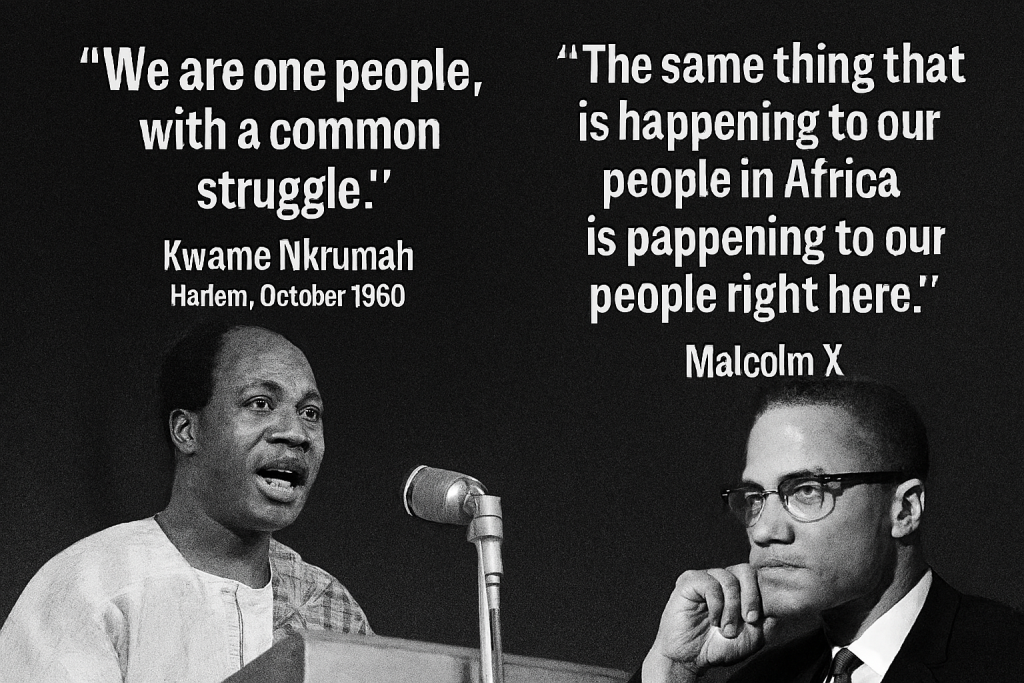From Nkrumah’s 1960 Harlem speech to Malcolm X’s global vision, the struggle for African sovereignty and Black liberation remains one and the same.
By Cheikh Fall, Founder of The Third Path Africa

“We are one people, with a common struggle.” — Kwame Nkrumah, Harlem, October 1960
In October 1960, Kwame Nkrumah stood before a crowd in Harlem, outside the Hotel Theresa, and declared that the destinies of Africans and African Americans were inseparable. It was not a ceremonial visit—it was a strategic declaration. Nkrumah understood that the fight against colonialism in Africa and the fight against racism in America were two fronts of the same global battle: the dismantling of white supremacy and imperial domination.
Howard W. French’s The Political Giant the West Forgot—excerpted from his book The Second Emancipation—revives Nkrumah’s legacy as a revolutionary thinker whose vision was deliberately suppressed. French argues that Nkrumah’s call for African unity was not utopian—it was geopolitical. He saw the continent’s fragmentation as a colonial design meant to prevent Africa from rising as a global force. His speech in Harlem was a reminder that liberation must be transnational.
In my own op-ed, A United Africa: The Imperative to Reclaim a Stolen Destiny, I build on this foundation. I argue that the Berlin-imposed borders, the neocolonial economic architecture, and the structural adjustment programs of the Bretton Woods institutions were not isolated events—they were part of a continuum of dispossession. Africa’s division was engineered to manufacture dependence. And just as Nkrumah warned, it has left the continent politically fragile, economically manipulated, and culturally disoriented.
Malcolm X, too, saw this clearly. He reframed civil rights as human rights and insisted that Black Americans must look to Africa—not just for pride, but for partnership. “The same thing that is happening to our people in Africa is happening to our people right here,” he said. His message was electrifying: Black liberation was global, and sovereignty was the ultimate goal.
Today, the echoes of Nkrumah and Malcolm X converge in a new generation of African and diasporic thinkers, builders, and activists. The African Continental Free Trade Area (AfCFTA), the AHACTI initiative, and youth-led demands for monetary sovereignty are not just policy frameworks—they are instruments of emancipation. They represent a strategic pivot from fragmentation to coherence, from dependency to delivery.
French’s article vindicates Nkrumah. My op-ed operationalizes him. And the Harlem speech reminds us: unity is not nostalgia—it is necessity.
“Let’s stop commemorating the struggle. Let’s start completing it.”